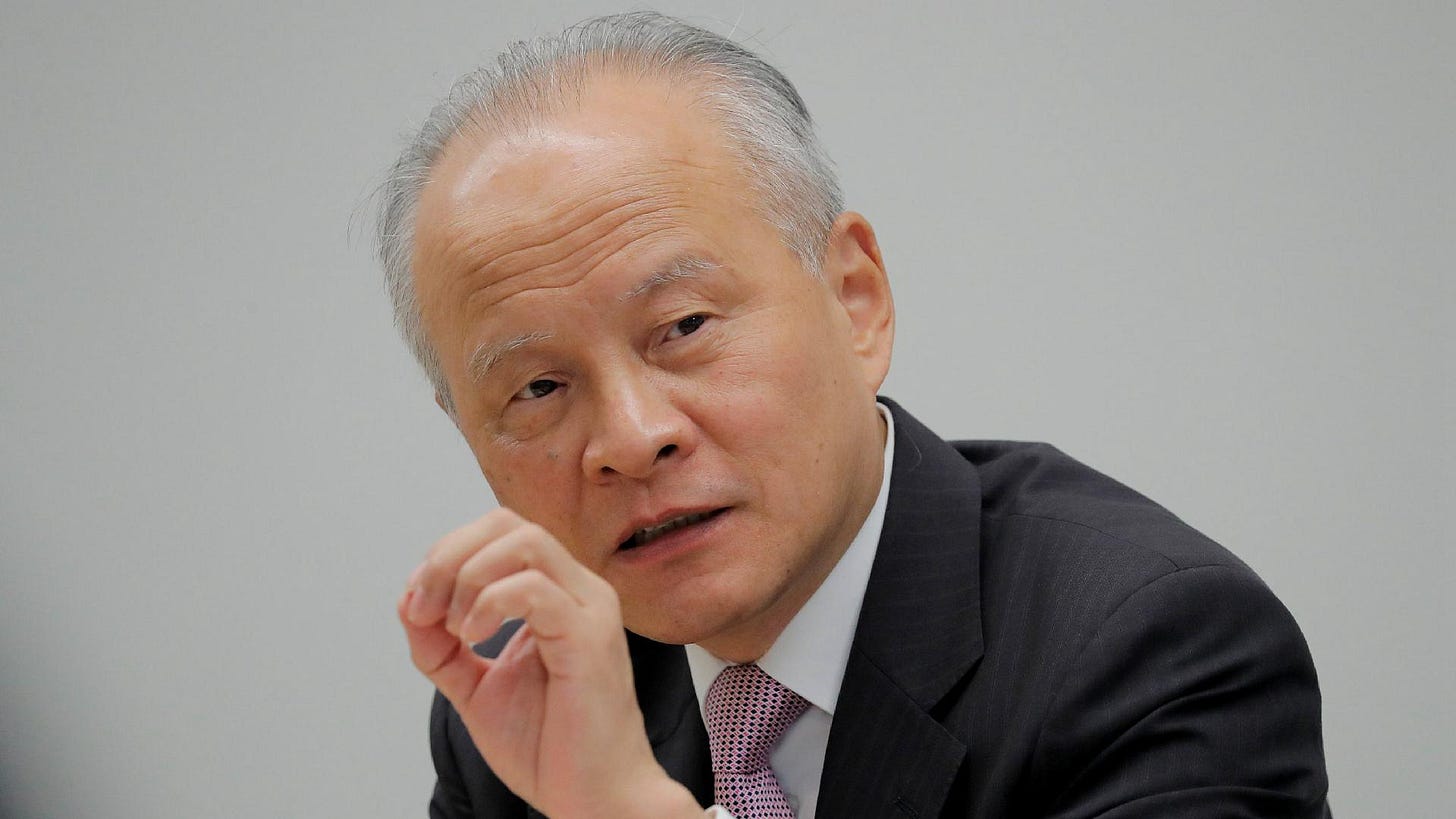China Soft-Peddles US Rhetoric, Measures
With time on its side, Beijing waits for Washington to exhaust itself

By: Toh Han Shih
China has reacted in a relatively mild and conciliatory manner against the US’s tough rhetoric and hostile measures, including economic sanctions and sending two carrier battle groups into the South China Sea.
The latest US measures against China include tougher screening of Chinese investments and sanctions on 11 Chinese companies.
On J…
Keep reading with a 7-day free trial
Subscribe to Asia Sentinel to keep reading this post and get 7 days of free access to the full post archives.
